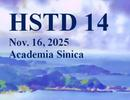Speaker
Description
Proton Irradiation for quality assurance of ATLAS18 strip sensors with
Birmingham MC40 cyclotron
Thomas Thory-Rao, Andrew Stephen Chisholm
on behalf of the ATLAS ITk Strip Sensor Collaboration
The Birmingham MC40 Cyclotron is used to perform proton irradiations of
silicon detector devices as part of the ongoing ATLAS ITk Strip Quality
Assurance program. It provides a dedicated beamline delivering 27 MeV
protons at currents up to a few μA, collimated to a square beam profile
of 10 mm x 10 mm of roughly uniform intensity. Samples are placed within
a thermally controlled box, held below -20C, which is scanned across the
beam allowing a uniform fluence to be delivered without uncontrolled
annealing occurring during the irradiation.
Recently, upgrades have been performed to the sample scanning system,
including new motor stages and improved control software. These upgrades
have increased the maximum scanning speed of the system, allowing the
beam current to be increased from 200nA to 500nA, with the scanning
speed increased proportionately from 4mm/s to 10mm/s. This increase in
turn leads to faster irradiation times; for 6 10mm x 10mm mini sensors
the ITk Strip QA fluence of $1.6 * 10^{15}$ neq/cm$^2$ is now achievable in
under 1.5 hours, twice as fast as before.
A brief history of the facility will be presented, discussing the
facility's early issues of unexpectedly low collected charge for
irradiated mini sensors, and how these were resolved through changes to
the beam collimators and scanning patterns. Following this the current
status of the facility post-upgrade will be outlined in detail, and
measurements of irradiated ITk strip test structures, showing
consistency with both the pre-upgrade system and other irradiation
facilities, will be presented. In summary, this talk will highlight the
Birmingham MC40 Cyclotron's role in the successful continuation of the
ATLAS ITk Strip QA program, along with it's potential use for high
fluence irradiations for future detector R&D.

